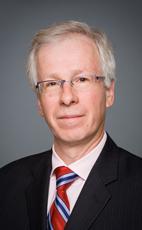Mr. Speaker, I am delighted to finally be able to express the truth about the status and the role of the people of Quebec, because it is not being expressed by the opposition and never will be.
The people of Quebec enjoy the greatest possible autonomy within Canada as regards their own institutions. Of all the federations in the world, it would be difficult to find one more decentralized than Canada. Canada's provinces have a higher status than American states, Swiss cantons or German l«nder. This is what Quebecers enjoy. They also enjoy Canada.
We are not saying that everything is perfect. Things have to be improved. The reality of Quebec in Canada and in North America must be recognized, but to move from that fact to endlessly describing Quebec as suffering to the point where only such an extreme solution as secession will suffice is stretching the truth to the breaking point.

